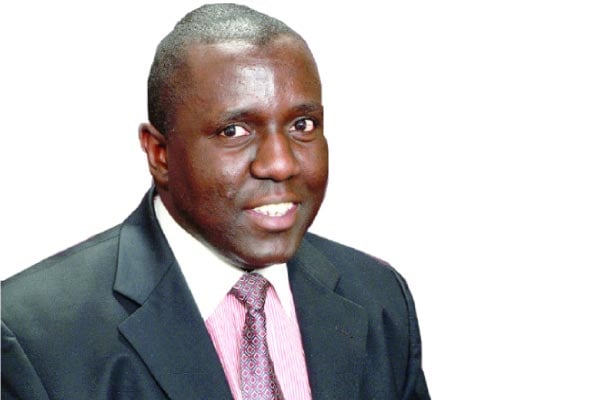Prime
Joyce Mpanga: Passing of a generation that swung into life right before independence

Author: Karoli Ssemogerere. PHOTO/FILE
What you need to know:
- Joyce Mpanga, whose remarkable story narrated in It’s a Pity she is not a boy, said it all. Courtly manner, deference to authority, speaking up to power when it mattered and a rare attribute today, modesty spoke it all.
Today, many years after Independence, the Kampala-Hoima road is now tarmacked, as is Kampala-Mubende-Fort Portal-Kasese.
It was never like this for many years. I recently visited as far as Bugoma Forest, and came within the precinct surrounding Kyangwali refugee camp, the largest in Uganda. Lightly settled even in 2023, was the word.
The old districts of Mubende and Kiboga (that covered Busujju and Singo, totaling 2,138 square miles and Buwekula covering 1,024 square miles) or the entire landmass between River Mayanja that crosses south at Busunju, where Jesa Farms is found, to River Kafo all the way to River Kafu at the eastern gateway to Bunyoro kingdom were represented in the NRC, the interim legislature, by just two women, Rhoda Kalema was the Council Member for Kiboga County, a competitive seat, and Joyce Mpanga was the Woman Council Member for Mubende District.
They served alongside Sepiriya Kajubi (Kassanda), Besweri Mulondo (Mityana), Abu Mayanja from tiny Busujju County, Celestine Mukiibi (Buweekula). The vast land mass was so huge, going by the modest allowances the Council members earned in the day, if they were not Ministers, they went by with a Toyota Stout pickup, it’s amazing they even managed to represent their people effectively in Parliament.
Yet, Joyce Mpanga, whose remarkable story narrated in It’s a Pity she is not a boy, said it all. Courtly manner, deference to authority, speaking up to power when it mattered and a rare attribute today, modesty spoke it all.
Joyce Mpanga, the Fulbright Scholar, in-between Member of Parliament, member of the first UPC shadow cabinet in 1961-1962, where she sat opposite her cousin another educationist, William Senteza Kajubi who unlike her joined the Democratic Party. Joyce’s story was captivating.
Unlike her husband, the late Attorney General Frederick Mpanga, she was already UPC, before Kabaka Yekka was formed. It was a remarkable distinction, she kept explaining, “there was no need to cross, I was already UPC”.
Days before her death, I found myself giving a social science class at home. There has been a video circulating on social media of Gen Moses Ali, the Deputy Prime Minister and Deputy Leader of Government Business.
I told the people at home, the story of Ms Mpanga narrated by herself and her son, the Buganda Minister, David Mpanga, how she approached him as Finance Minister for authorisation to buy foreign currency to treat her husband; and her papers were thrown at her.
People indeed do change, the Moses Ali of that time, from government, went to the bush, appointed to government, was arrested and tried for treason, before being released again. In his evening years before falling sick, Gen Ali ever speaks so calmly, informed perhaps by age, but also by the traumatic experience of having enjoyed and lost power, before coming back to life.
Ms Mpanga’s autobiography told many stories. It was interesting to learn that cheating on national exams was a bigger problem in Kenya than in Uganda. Women made so many small steps, just a handful attended Makerere, and even fewer stood out and sat for the University of London examinations. Most students at the time were awarded diplomas of Makerere University rather than degrees, a key contention between Ben Kiwanuka and the British.
In this role, replicated in many countries, they were being trained to always deputise the British civil servants and officers in government.
This subservient role possibly nipped in the bud the leadership potential of many Ugandans of the time, as submissiveness,\ made them helpless to stand up to the excesses of the young Milton Obote administration in the 1960s, and warmed up to Idi Amin, who himself was another CIA project to punish Obote for turning to the left in 1969.
Joyce was essential, cautious and well preserved. She lived long enough to tell her story on her own terms, released from the economic uncertainties of her working life and political past.
I was reading her story, the day my father died, last year at age 90. It will remain etched in my memory, she died the same day, age 90, one year later, may her soul rest in eternal peace.
Mr Karoli Ssemogerere is an Attorney-At-Law and an Advocate. [email protected]


